In the bustling tropical paradise of Bali, typhoid fever is a health concern for both residents and visitors due to varying sanitary conditions. Typhoid Bali is a dedicated initiative that provides swift and accurate testing services to diagnose this bacterial infection. With access to facilities like ours, timely detection of Salmonella typhi becomes feasible, allowing immediate treatment and preventing further complications.
Understanding the reality of Typhoid Bali is essential for anyone living in or traveling to the region. This comprehensive guide, along with our reliable diagnostic services, aims to equip individuals with the necessary knowledge to tackle typhoid fever effectively. Our goal at Typhoid Bali is not just to help identify the infection but also to contribute to overall awareness, thereby reducing the risk of typhoid fever in the region. Stay informed, stay healthy, and ensure your safety during your stay in Bali with Typhoid Bali.
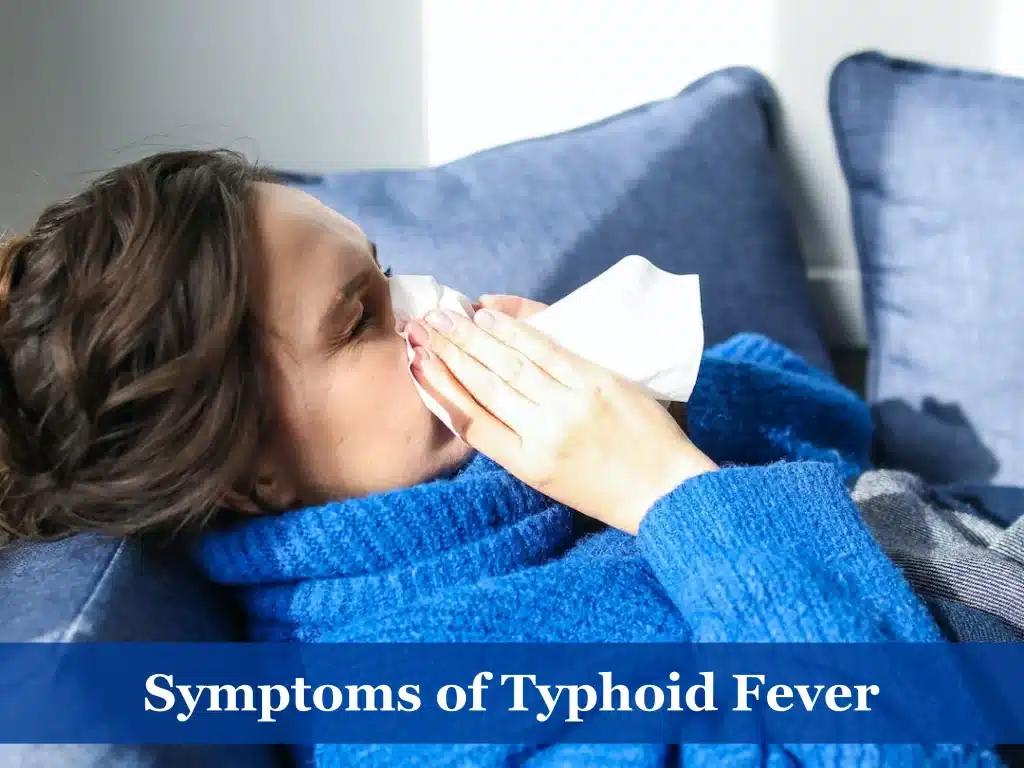
Symptoms of Typhoid Fever
Typhoid fever symptoms usually manifest within 6-30 days after exposure to the bacteria. Common symptoms include:
- High fever, often reaching 103°F (39°C) or higher
- Weakness and fatigue
- Headache
- Abdominal pain
- Constipation or diarrhea
- Loss of appetite
- A rash of flat, rose-colored spots (in some cases)
Severe typhoid fever can lead to complications like intestinal bleeding, perforation, or an infection spreading to other organs. Early diagnosis and treatment are crucial to prevent these complications.
Who Are At Risk For Typhoid Fever?
Typhoid fever is most common in areas with poor sanitation, including developing countries in Asia, Africa, and Latin America. Travelers to these areas are at high risk of contracting the disease. Additionally, individuals living in areas with poor sanitation or close contact with someone with typhoid fever are also at risk. Individuals with compromised immune systems, including those living with HIV/AIDS or receiving chemotherapy, are also at a higher risk of contracting the illness.
Typhoid fever can be transmitted through contaminated food and water sources, making individuals who consume these sources more vulnerable to infection. This includes street food, raw or undercooked seafood, fruits, and vegetables that have been washed with contaminated water and untreated or improperly treated drinking water.
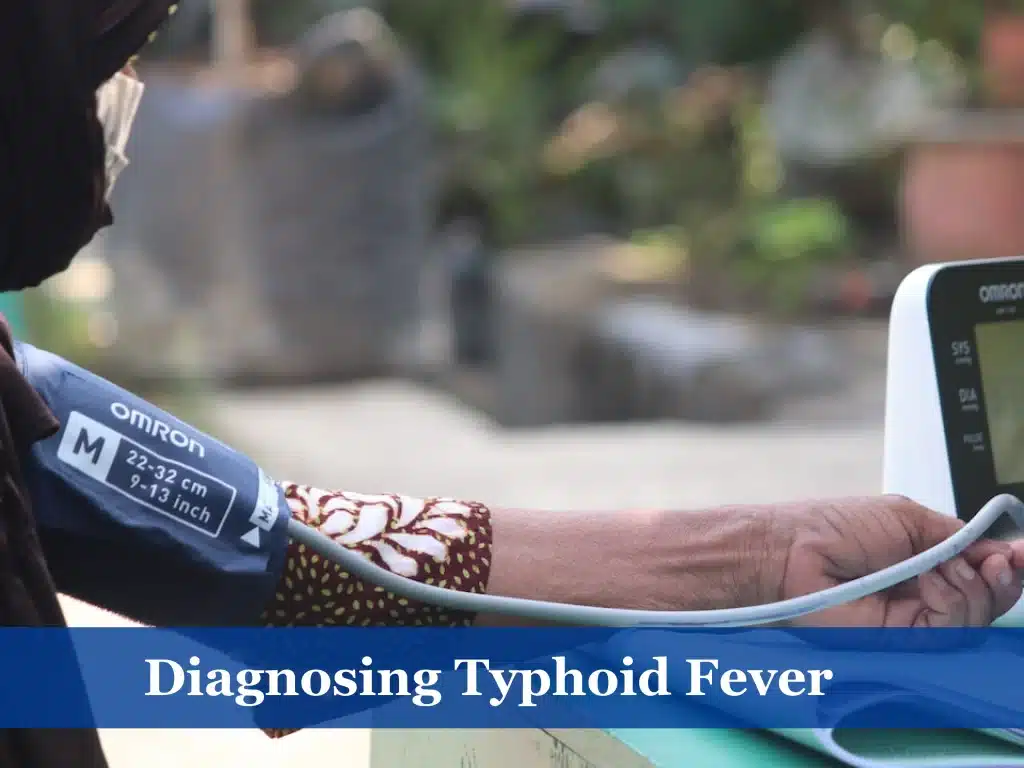
Diagnosing Typhoid Fever
The Widal Test: Diagnosing typhoid fever typically involves blood, stool, or bone marrow cultures to detect the presence of Salmonella typhi bacteria. One widely used diagnostic method is the Widal test, a serological test that detects specific antibodies in the patient’s blood.
The Widal test measures the levels of antibodies against the O and H antigens of Salmonella typhi. A significant increase in antibody titers between acute and convalescent-phase serum samples can indicate a typhoid fever infection. However, the Widal test may produce false positives or negatives, so it is usually combined with other diagnostic methods for more accurate results.
Other diagnostic methods include polymerase chain reaction (PCR) tests, which can detect the presence of Salmonella typhi DNA, and enzyme immunoassays, which can identify specific antigens in blood or urine samples. These tests may be more sensitive and specific than the Widal test, although they can also be more expensive and less widely available.
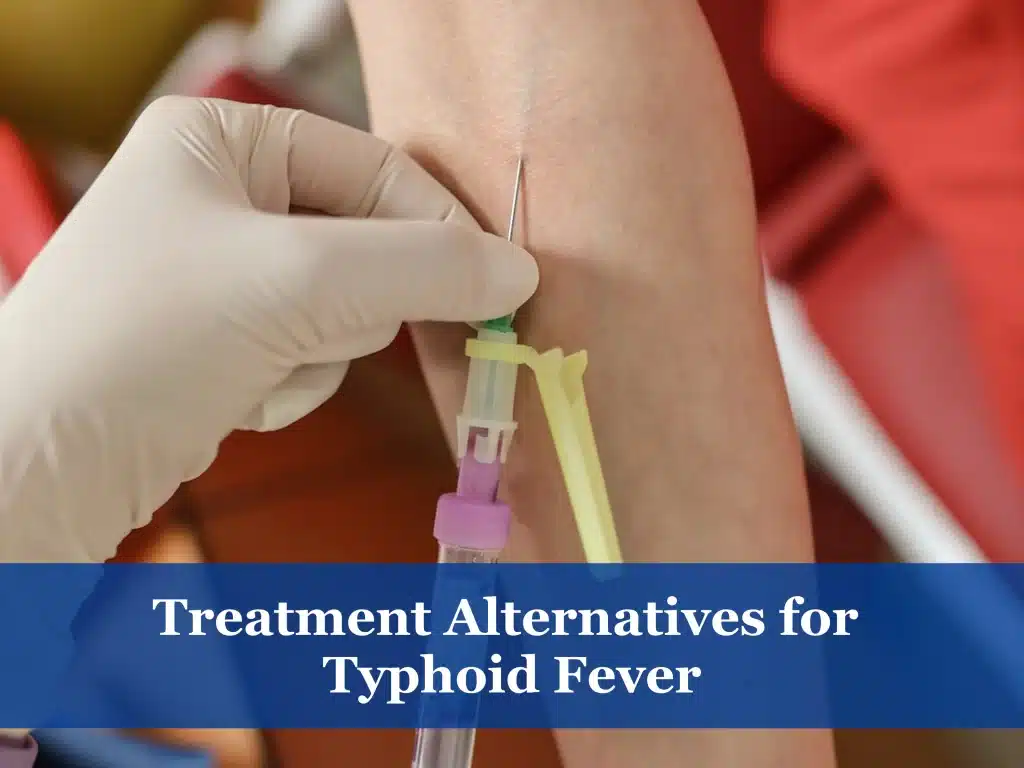
Treatment Alternatives for Typhoid Fever
The standard treatment for typhoid fever involves administering antibiotics to eradicate the bacterial infection. The appropriate antibiotic selection depends on the regional resistance patterns and the severity of the infection. Adhering to the complete prescribed antibiotic course is crucial for successful treatment and preventing antibiotic resistance. Some commonly prescribed antibiotics for typhoid fever include ceftriaxone, azithromycin, and ciprofloxacin.
Providing supportive care, including ensuring adequate hydration and managing fever using over-the-counter medications like acetaminophen or ibuprofen, contributes to symptom relief and facilitates recovery. In some severe cases or complications, hospitalization may be necessary to administer intravenous antibiotics and provide additional supportive care, such as blood transfusions or surgery to repair intestinal damage.
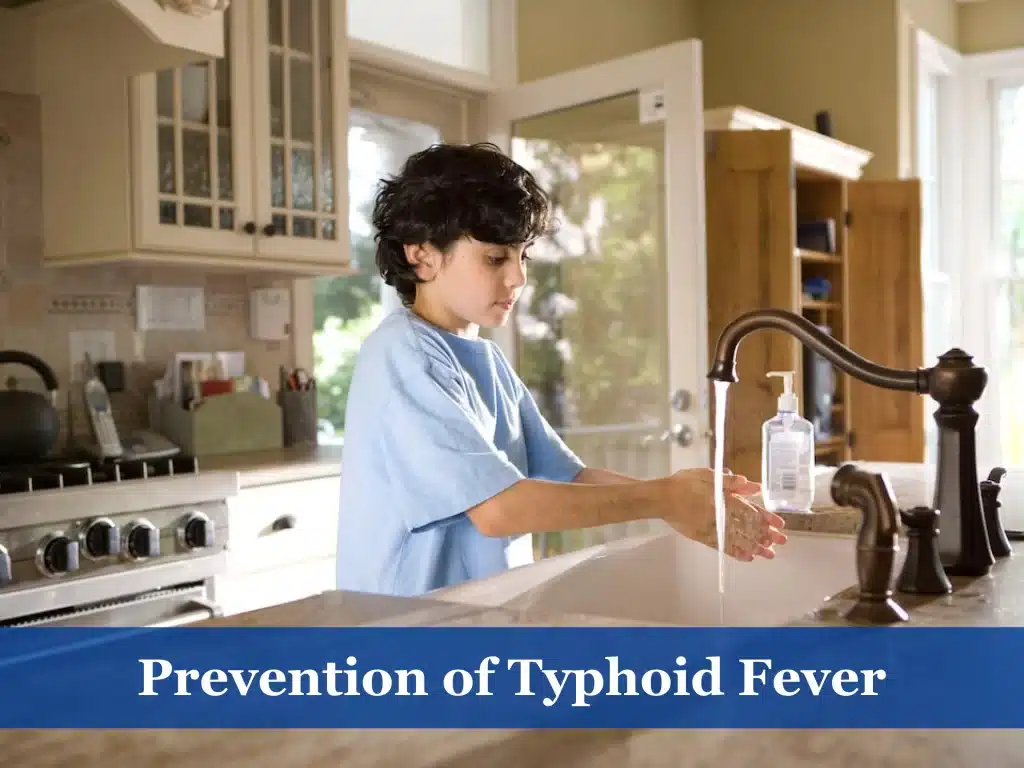
Prevention of Typhoid Fever
To reduce the risk of contracting typhoid fever, consider the following preventative measures:
- Practice good hygiene: Regularly wash your hands with soap and water, especially before preparing or consuming food and after using the restroom.
- Consume safe food and water: In areas where typhoid fever is prevalent, avoid consuming raw fruits and vegetables, street food, and untreated water. Choose bottled or purified water and well-cooked food.
- Get vaccinated: Vaccines for typhoid fever are available and can provide some protection against the infection. Consult your healthcare provider to determine if vaccination is recommended for you, particularly if traveling to a high-risk area.
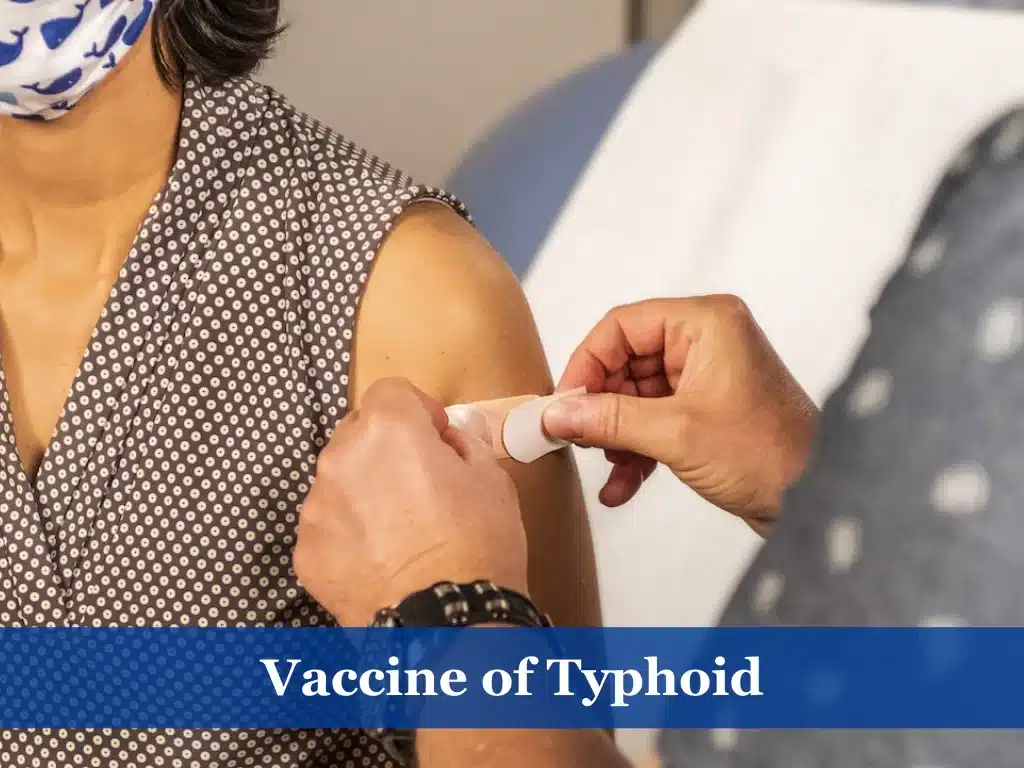
Vaccine of Typhoid Bali
There are two types of vaccines available for typhoid Bali fever: the inactivated (killed) vaccine and the live attenuated (weakened) vaccine.
- Inactivated (killed) vaccine: Also known as the Vi polysaccharide vaccine, this type is injected as a single dose. It is suitable for people aged two years and older. The vaccine offers protection for about two to three years and requires a booster dose every two years for continued protection.
- Live attenuated (weakened) vaccine: This oral vaccine, known as the Ty21a vaccine, is administered in a series of capsules. It is suitable for people aged six years and older. A total of four capsules are taken on alternate days over a week. This vaccine offers protection for about five years, after which a booster dose is needed.
Both vaccines offer some protection against typhoid Bali fever, but they are not 100% effective. They can reduce the risk of infection and the severity of the disease if contracted. It is essential to remember that the vaccine does not replace the need for practicing good hygiene, consuming safe food and water, and taking other preventive measures.
Conclusion
TyphoidBali fever is a severe bacterial infection that requires immediate medical attention. If you experience any symptoms associated with typhoid Bali fever and suspect you may be infected, it is crucial to undergo a reliable and trusted diagnostic test like the Widal test. The SalineBali Clinic is renowned for providing accountable and accurate Widal tests. By visiting The SalineBali clinic, you can ensure that your diagnosis is reliable and receive appropriate treatment to manage typhoid Bali fever effectively. Prioritize your health and trust reputable clinics like SalineBali Clinic for comprehensive care and peace of mind. Remember, early detection and proper treatment are vital to overcoming typhoid Bali fever and safeguarding your well-being.



